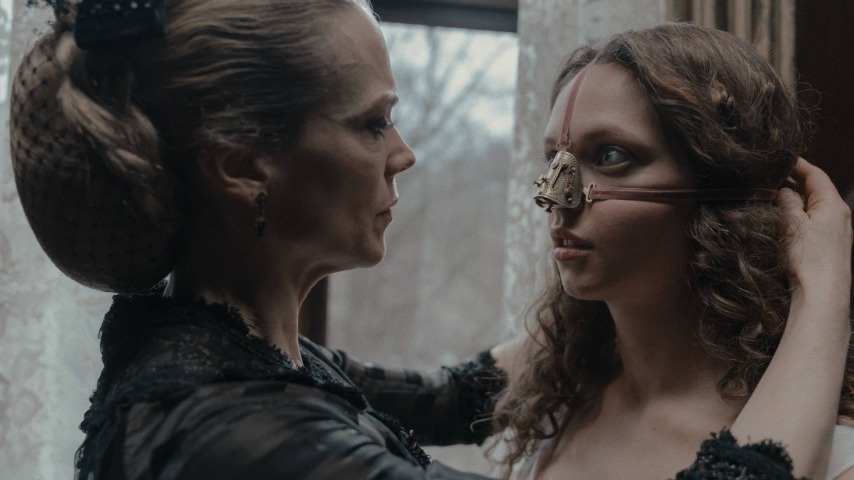Impressively nasty body horror puts The Ugly Stepsister through a beautification gauntlet
The film inverts Cinderella into a gross-out social satire filled with gags and lush décor.
Photo: Shudder
Screamboat Willie notwithstanding, horror is the natural avenue for so many of the stories once told by Walt Disney. Making these films more “real” doesn’t mean merely translating their fantastical elements into live-action, but staring their warped, didactic nature in the face. The uneasy, scared-straight side of fairy tales has always lurked in the subtext of Disney’s princess films, but rarely do they get pushed to their gory limit like in The Ugly Stepsister. The impressively nasty first feature from Norwegian filmmaker Emilie Blichfeldt, this grimmer than Grimm take on Cinderella invokes the violent moralizing of the 19th century to tell body-horror geeks the world’s most upsetting bedtime story.
The set-up is by the storybook, as is the feasts-castles-and-gowns aesthetic beautifully staged by Blichfeldt, production designer Sabine Hviid, and costume designer Manon Rasmussen. But beauty is only skin-deep in this world, and looking a little closer reveals rotting food, deteriorating manors, and moth-eaten rags. The reason that Elvira (Lea Myren) is put through a medieval makeover is to follow in the seductive footsteps of her gold-digging mother (Ane Dahl Torp). While her mom has recently landed them a place to stay by marrying up, financial security remains a daydream perpetuated by the princes and love poems that fill Elvira’s imagination. So, when the local prince announces a ball, and invites Elvira and her perfectly pretty Cinderella stand-in stepsister Agnes (Thea Sofie Loch Næss), the heroine must devote herself, body and soul, to excruciating beauty standards in order to meet the expectations of her terrible mother and the equally terrible royalty she wants to impress. This is the process by which The Ugly Stepsister gets more and more brutal—looksmaxxing in a Dark Age dungeon.
 Keep scrolling for more great stories.
Keep scrolling for more great stories.
